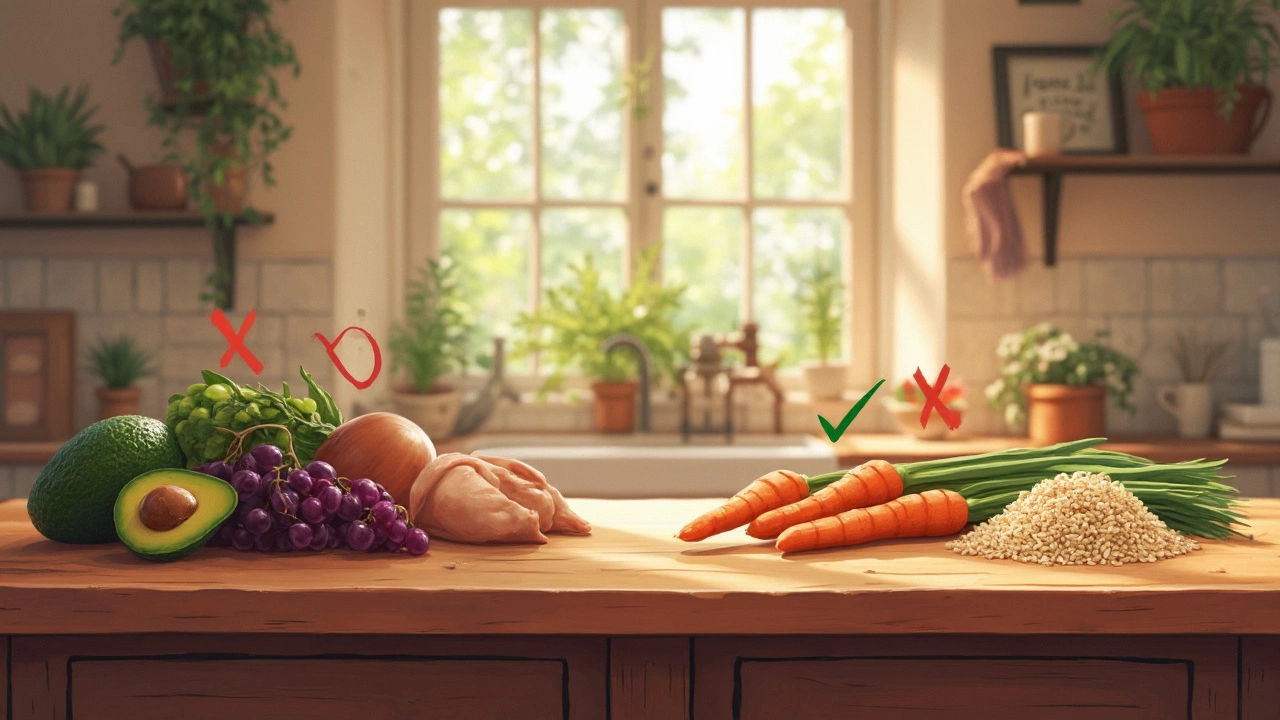Dangerous Dog Foods You Should Never Feed
Ever looked at your dinner plate and wondered if your dog could have a bite? Most pet owners think a little taste can’t hurt. The truth is many everyday foods are downright dangerous for dogs. Knowing what to skip saves you a vet bill and keeps your furry friend happy.
Common Kitchen Culprits
Chocolate – The darker, the worse. It contains theobromine, which dogs process very slowly. Even a small piece can cause vomiting, rapid heartbeat, or seizures.
Grapes and raisins – These tiny fruits can trigger sudden kidney failure. The exact toxin is still a mystery, but the risk is real.
Onions, garlic, chives – All members of the Allium family damage red blood cells. Whether raw, cooked, or powdered, they can cause anemia that shows up as lethargy and pale gums.
Xylitol – This sugar substitute is found in sugar‑free gum, candy, and some peanut butter. In dogs it causes a rapid insulin surge, leading to low blood sugar and possible liver damage.
Macadamia nuts – Just a few nuts can make a dog shaky, weak, and nauseous. The exact cause isn’t known, but the symptoms are unmistakable.
Avocado – The fruit’s pit and skin contain persin, which can cause stomach upset and breathing trouble in sensitive dogs.
Coffee and caffeine – A single espresso shot can make a dog jittery, increase heart rate, and even cause tremors.
Alcohol – Even a sip can depress the nervous system, leading to vomiting, coordination loss, or coma.
Cooked bones – They splinter easily, creating sharp shards that can puncture the gut or cause choking.
These foods are just the tip of the iceberg. Whenever you’re unsure, keep it out of reach.
Spotting Trouble and What to Do
Symptoms of food toxicity show up fast. Look for vomiting, diarrhea, excessive drooling, tremors, weakness, or a sudden change in behavior. If you notice any of these after your dog has eaten something suspicious, call your vet right away. Time matters, especially with chocolate or xylitol.
While waiting for professional help, you can try to induce vomiting (only if instructed by a vet) and give fresh water. Do NOT give food or medication unless a vet tells you to.
Prevention is easier than treatment. Store all human food in sealed containers, keep countertops clear, and teach kids to ask before sharing snacks. When you shop, read pet food labels for hidden ingredients like onion powder or added sweeteners.
If you want to give your dog a special treat, stick to dog‑safe options: plain boiled chicken, carrot sticks, apple slices (no seeds), or specially formulated dog treats. These provide flavor without the hidden dangers.
Finally, keep the Emergency Vet Phone number and the Pet Poison Helpline (1‑855‑764‑7661) saved in your phone. A quick call can save a life.
Knowing which foods are risky lets you enjoy mealtime with peace of mind. Keep the dangerous foods out, offer safe snacks, and watch your dog thrive.
Uncovering the Most Unhealthy Food for Dogs
Discover the most unhealthy foods for dogs and learn how to avoid them. This article highlights the dangers of certain common foods that are harmful to your furry friend. Gain insights into healthier alternatives and helpful tips to keep your dog safe and healthy. Understanding what not to feed your dog is crucial for their well-being. Let's ensure our canine companions enjoy a long, happy life.
